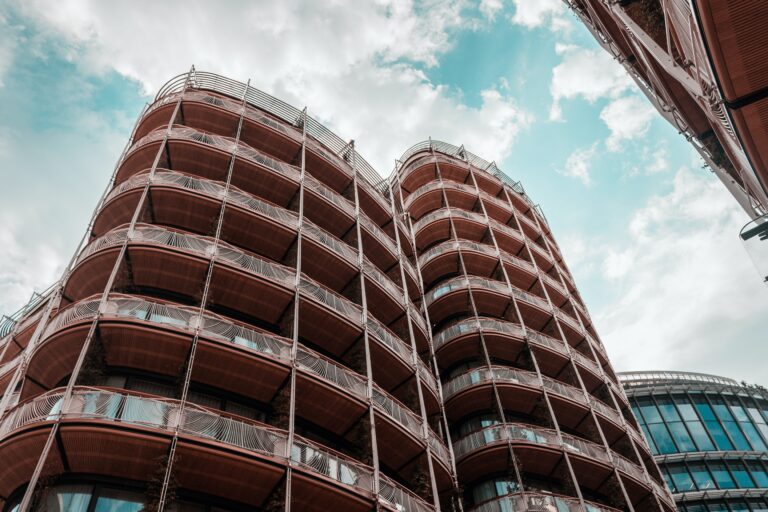Every year, more and more high-net-worth individuals choose to move to Monaco. This small principality, nestled along the spectacular Côte d’Azur, has seen a steady influx of newcomers who appreciate its unique blend of cosmopolitan glamour, unrivaled safety, and remarkable tax advantages.
But what exactly makes Monaco so appealing? In this article, we will explore the benefits of Monaco residency, explain the tax incentives, touch upon the realities of its thriving real estate market, and provide a brief overview of how to obtain your permit to reside in this exclusive enclave.
NEW REPORT
The report “The definitive guide to living in Monaco” is now available, with detailed information on Monaco’s tax framework, residence and society.
Click here to download it for free.
Monaco, the paradise of the Côte d’Azur
Everyone has heard of the French Riviera and its beautiful spots: Cannes, Nice, Saint-Tropez… Each has its own charm, yet none can match the exclusivity or opulence that Monaco offers. Despite being one of the smallest countries in the world (just over two square kilometers) this principality has secured a prominent place on the map of luxury, sophistication, and security.
Whether you stroll through Monte Carlo’s famed Carré d’Or, admire the stunning marinas filled with superyachts, or walk through the immaculately clean streets, you will sense Monaco’s commitment to a high standard of living. The level of safety is remarkable: crime is virtually non-existent, thanks to strict local regulations and a highly efficient police force. All this contributes to the peaceful atmosphere that makes the principality so attractive to families, retirees, young entrepreneurs, and sports professionals alike.
Still, there is more to Monaco than luxury boutiques, Michelin-starred restaurants, and five-star hotels. The country also shines in terms of social stability, world-class healthcare, and top-tier education. Combine these factors with a tax system that is the envy of many nations, and you can see why Monaco continues to draw in discerning individuals from around the globe.
Monaco is also in an excellent location and has very good rail and road connections to France and Italy, and is very close to Nice airport. This makes the Principality a perfect hub for moving around the old continent, something you can do freely even if you are not an EU citizen, since as soon as you obtain Monegasque residency you will be able to enjoy free access to the entire Schengen area.
The unbeatable tax proposal
Of course, the single biggest talking point about living in Monaco is its tax framework. While the principality is sometimes incorrectly labeled “completely tax-free,” the truth is that residents still benefit from what is arguably one of the most favorable tax systems in the world.
Below is a brief summary of the core advantages of the Monaco tax system:
- No personal income tax: Except for French nationals (subject to a specific treaty with France), Monaco does not levy personal income tax on resident individuals.
- No capital gains or wealth tax: Monaco does not impose taxes on capital gains, wealth, or net worth. This absence of major taxes significantly lightens the financial burden for successful entrepreneurs, high-net-worth individuals, and investors.
- No municipal or annual property tax: Property owners in Monaco do not pay local or annual property taxes.
- Low inheritance tax: For spouses and direct children, the rate is 0% if the assets are located in Monaco.
Meanwhile, corporate tax only applies to companies generating more than 25% of their turnover outside the Principality and is set at 25%. New businesses even enjoy an initial period of lower rates or full exemptions.
Thanks to this environment, many see Monaco as the ultimate tax-efficient location, even though strict international transparency measures mean it’s no longer considered a tax haven by major institutions.
Housing within the reach of a few
As one might expect, all these attractive benefits inevitably lead to high demand for real estate in the Principality. And given Monaco’s limited space (wedged between sea and mountains) supply is also very constrained. It is, therefore, the most expensive real estate market on the planet. Prices above €50,000 per square meter are not uncommon, especially in sought-after districts like Monte Carlo or Larvotto.
This exclusivity holds true for both buying and renting. Those looking to rent may expect to spend anywhere from €3,000 to €6,000 per month for a small studio, with larger family homes and luxury apartments costing tens of thousands of euros a month.
Indeed, the combination of high demand and strict regulations creates a scenario in which only those with a robust financial portfolio can reasonably secure long-term accommodation in Monaco.
NEW REPORT
The report “The definitive guide to living in Monaco” is now available, with detailed information on Monaco’s tax framework, residence and society.
Click here to download it for free.
How to get the residency
Meeting the residency requirements is the essential step for enjoying these extraordinary benefits. Generally speaking, if you possess the purchasing power to afford a suitable home in the Principality (and satisfy a few additional conditions) you may qualify for the Monaco residency. Below are the key components:
- Secure a property in Monaco:
- Purchase or rent a flat/house appropriate to the size of your family.
- Manage a company that owns a property in Monaco.
- Live with a spouse who already holds a valid residence and home in Monaco.
- Demonstrate financial capacity:
- Show sufficient savings, validated by a local Monegasque bank. In practice, the minimum may fall between €500,000 to €1,000,000 in liquid assets.
- Provide proof of a job offer in Monaco or ongoing self-employment income.
- Justify maintenance by a spouse or close relative, if applicable.
- No criminal record: You must supply a valid criminal record check for the previous five years from your country of origin or last residency.
Once your application is submitted, expect thorough due diligence from the local authorities, which can take several weeks. If approved, you will receive your “Carte de Séjour” (residence permit). Remember that you need to physically spend at least three months per year in Monaco to keep your residency status.
Although that might not seem like much, authorities are rigorous in verifying actual presence in the Principality, often by checking local utility consumption and credit card usage.
Get in touch today
At MonacoAdvisers, we specialize in helping entrepreneurs, high-net-worth individuals, sports stars, and cryptocurrency experts move their tax residence to Monaco. Our deep knowledge of the Monegasque intricacies makes us the ideal partner for an otherwise arduous process.
If you have any questions about relocating to Monaco or would like professional assistance ensuring your new tax residence is set up correctly, please contact us via email at [email protected] or through the contact form.
We also recommend you download our complimentary report “The definitive guide to living and paying taxes in Monaco”, where we explore in even more detail the benefits of Monaco residency.
Sources:
- https://en.service-public-particuliers.gouv.mc/Residency/Settling-in-Monaco/How-to-obtain-a-residence-permit/Conditions-for-issuing-residence-permits
- https://monservicepublic.gouv.mc/en/themes/tax/information/general-information/tax-in-monaco
- https://www.ey.com/content/dam/ey-unified-site/ey-com/en-gl/technical/tax/documents/ey-worldwide-personal-tax-and-immigration-guide-april-2024-v1.pdf



 All communications are encrypted and will be treated with absolute confidentiality. Your data will never be shared with third parties.
All communications are encrypted and will be treated with absolute confidentiality. Your data will never be shared with third parties. 




